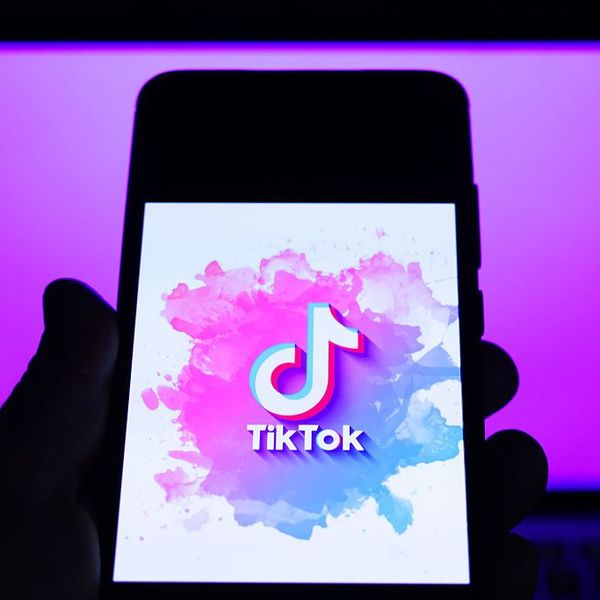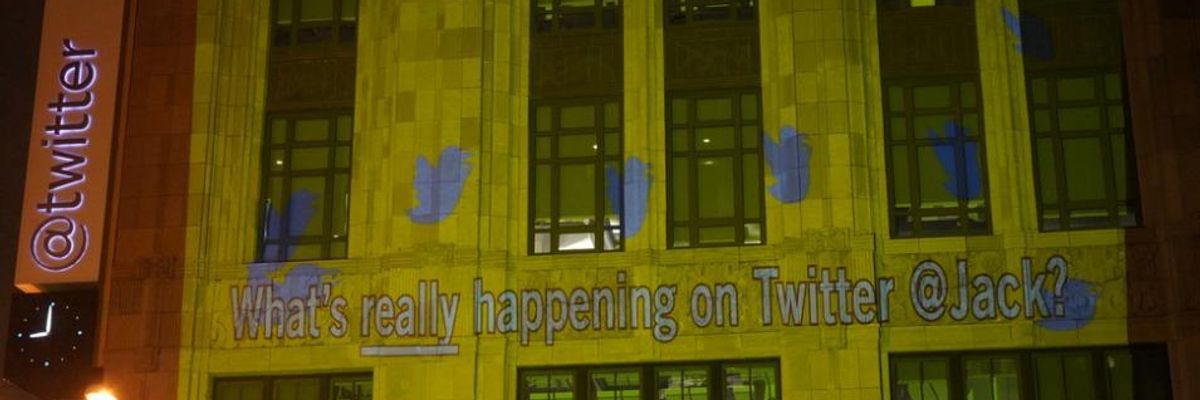The human rights group Amnesty International accused Twitter of creating a toxic atmosphere for women on its platform in a report on Wednesday--saying the company fails to enforce clear restrictions banning abuse, and leaves users without a clear sense of its rules and their rights.
The study detailed death threats and rape threats, as well as misogynist, racist, transphobic, and homophobic abuse targeting women. The women who detailed their experiences of abuse included prominent politicians in the UK, journalists, and women's rights activists.
"I have faced multiple layers of abuse on social media platforms, both on Twitter and on Facebook, both because I'm a woman and because of the stand I take on certain issues," Dawn Purvis, a reproductive rights activist, told Amnesty. "On Twitter I was threatened and told that I deserved to be killed."
"Some of the things that have been put on Twitter about me have had people say they know where I live, I've had people say that they'll be outside my work," said journalist Allison Morris.
In its report (pdf), entitled "Toxic Twitter," the group found that just nine percent of respondents felt the company was doing enough to ensure a safe environment for its female users, while 81 percent of American women and 78 percent of British women said they hesitated to share their opinions on Twitter for fear of being attacked--and ignored, should they report the abuse to the company.
As the study was released, Amnesty projected abusive tweets onto Twitter's headquarters in San Francisco to draw attention to the problem.
"For far too long Twitter has been a space where women can too easily be confronted with death or rape threats, and where their genders, ethnicities, and sexual orientations are under attack." --Kate Allen, Amnesty International UK
Twitter has no public policy ensuring that it will strive to protect human rights on its platform. The company introduced a hateful conduct policy in 2015, nearly a decade after it launched, stating that users cannot promote violence or threaten others based on race, ethnicity, gender, or other identities--but women surveyed by Amnesty say complaints about such behavior are frequently dismissed.
"I reported the abusive tweets and accounts," one woman told the group. "From that, one account got suspended. Everything else I reported to Twitter, they said, we are taking your complaint seriously and then nothing else was done. There was no further contact from Twitter...It almost feels that when you are filling in the reporting questions that they don't believe you."
The company's attitude towards complaints of abuse has helped make it a "toxic place for women," Kate Allen, director of Amnesty International UK, told the Guardian.
"For far too long Twitter has been a space where women can too easily be confronted with death or rape threats, and where their genders, ethnicities, and sexual orientations are under attack," said Allen. "The trolls are currently winning, because despite repeated promises, Twitter is failing to do enough to stop them."
"Ensuring an internet free from gender-based violence enhances freedom of expression as it allows women to fully participate in all areas of life and is integral to women's empowerment," UN Special Rapporteur on Violence Against Women Dubravka Simonoci was quoted as saying in the report.



